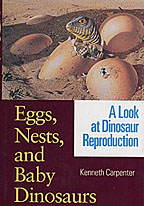This afternoon I took a short nap, and upon waking up a new hypothesis (at least to me) popped into my head as a result of a dream. The content of the dream isn’t important, but it led me to wonder about how stampeding behavior might help predators. Thinking about Cape Buffalo, Wildebeest, and other relatively large herding animals in Africa, I was led to ponder the following;
Predators often go after old, sick, young, or otherwise disabled prey, the rest of the herd moving off in a group while the predators pick out their prey. What if the chaos of the stampede/escape behavior of herd animals actually help predators, however, by causing some of the animals to hurt themselves? I’ve seen footage of antelope hitting trees in attempts to escape predators, and I have to wonder if in trying to escape predators, hering animals hurt themselves by either bumping into objects, bumping into each other, wrenching/twisting their ankles, etc. Thus, panic caused by predatos may lead some animals to become disabled, them becoming the next targets when the next predator goes on the hunt. I have no idea if this has been studied or if this is just a hypothetical pipe dream, but obviously I found it interesting enough to jot down for future reference.
And on an entirely different topic, thanks to everyone for their support of the 1st edition of The Boneyard. I hope the next one is even better!














I have my doubts that predators actually hope that their prey animals will hurt themselves in a stampede–it’s probably a happy accident. That is, I’m fairly certain that the predator’s hope is not that some buffalo will twist its ankle during the mass confusion. I think that predators cause stampedes to weed out the already lame or old individuals.
Zach; Just to clarify, I’m not suggesting that the predators are “hoping” the prey will injure themselves or are even trying to cause a stempede to acheieve that end (they’re focusing on the stragglers). What I am wondering if some of the prey animals inadvertantly injure themselves trying to escape, thereby providing a benefit to the predators the next time they come calling. This would be an unintended and unplanned benefit to the predators as a result of the prey’s escape strategy, although the benefits of herd life vastly outweight a few individuals being hurt in an escape attempt.
I think your idea is very interesting. It points out a bigger question, which is whether or not evolution is driven by personal (within species) success, or that evolution is aimed to fulfill the changing needs of an ecosystem. I realize that a single species succeeding can satisfy the needs of an ecology, but maybe this explains the marvelous success of evolution in some species while others remain virtually the same. Many large reptiles for example need not to change to help the health of an ecosystem while large warm blooded animals are required to take faster changes. Could evolution be beyond the needs of a single species not as a byproduct of another more selfish process, but by a grander design. (no this isn’t an ugly foot in the intelligent design door.)
Thanks for the comment and input, Jeff. I try to think of evolution as occurring within populations (as change in populations are what gives rise to speciation), but I also have to wonder about how the choice of individuals work. Selection is all about what happens to the individuals (having a cumulative effect within the population), and the most “fit” don’t always survive.
As for the difference between the success of reptiles vs that of mammals, I think a lot of that has to do with metabolism and overall ecology. It’s a larger and more complicated issue, but reptiles do not require as much food or seem to expend as much energy as mammals, so if the pressure is on in terms of selection (changes in the ecosystem, like drought) they may stand a better chance of survival than mammals with larger energy requirements.